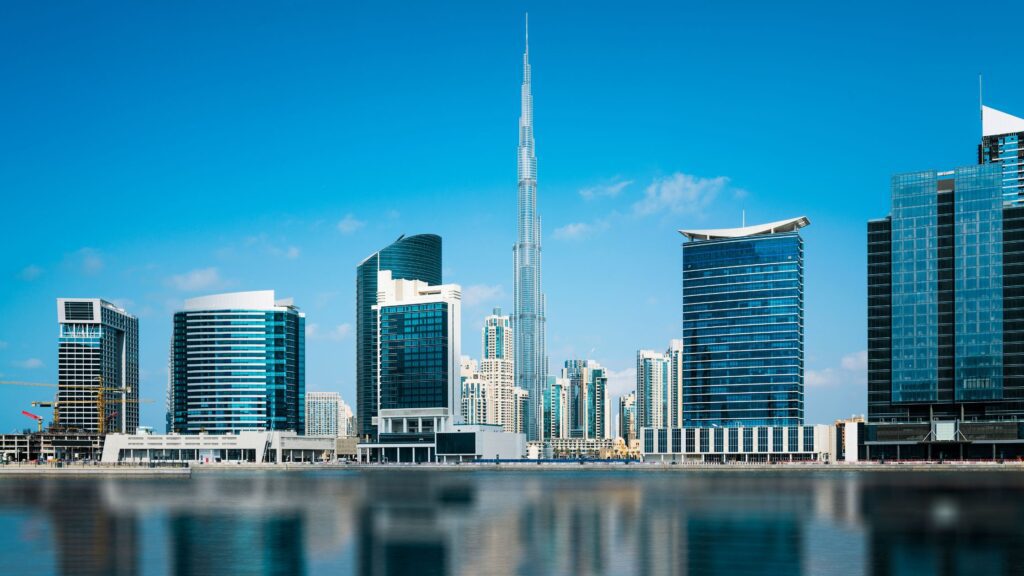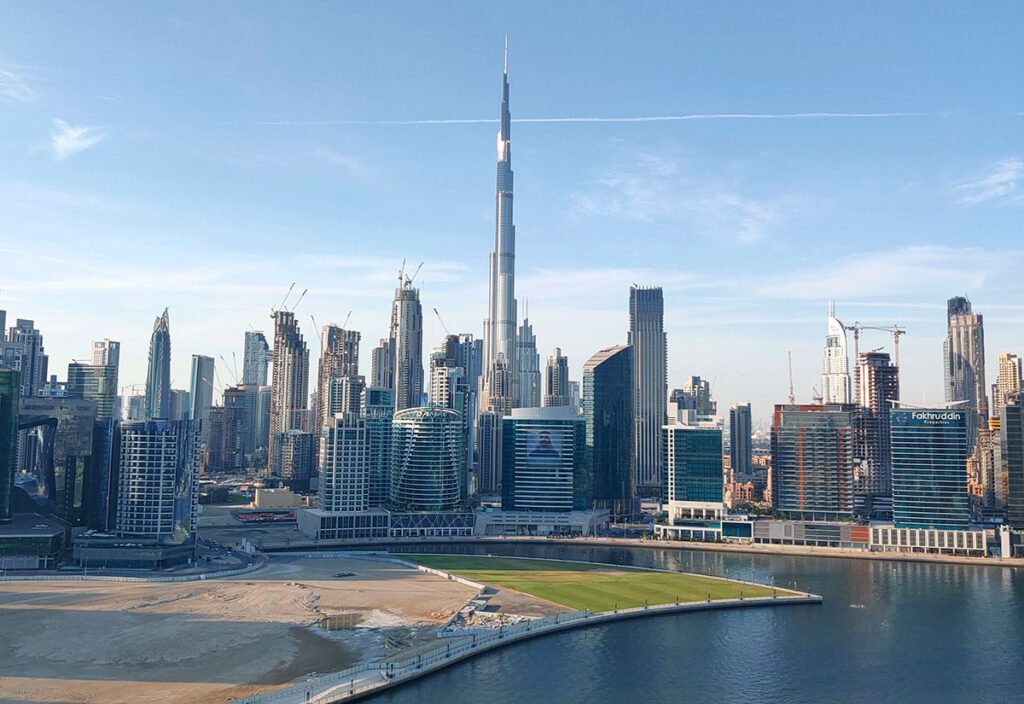The Heart of Dubai’s Growing Transport Industry
Dubai Transport Company jobs and salaries have become one of the most discussed topics among professionals seeking rewarding careers in the UAE. As Dubai continues to expand as a global hub for logistics, mobility, and infrastructure, the transport sector plays a critical role in driving the city’s progress. From aviation and metro systems to public buses, freight, and ride-hailing services, transport companies in Dubai offer a wide variety of opportunities for skilled professionals and workers alike.
Dubai’s transportation network is admired worldwide for its efficiency, innovation, and commitment to sustainability. Behind this system are thousands of people—drivers, engineers, planners, logistics experts, and administrators—who make mobility seamless. As 2025 unfolds, the demand for talent in this sector is increasing, along with competitive salaries and benefits designed to attract both local and international professionals.
Why Dubai’s Transport Industry is Expanding Rapidly
The UAE government has heavily invested in improving public transportation and logistics infrastructure. Major projects such as the expansion of Dubai Metro, introduction of autonomous vehicles, and integration of electric buses highlight Dubai’s futuristic approach to urban mobility.
The Roads and Transport Authority (RTA), Emirates Transport, Dubai Taxi Corporation, and private companies like Careem and Transguard are among the top employers in this field. These organizations continue to offer new job opportunities as they expand fleets, introduce new technologies, and enhance customer service.
Dubai’s position as a logistics and tourism hub also plays a key role. The need for efficient transport systems has increased with rising population growth, global trade, and tourism activity, making it a stable and promising field for employment.
Types of Transport Companies Operating in Dubai
Dubai’s transport ecosystem is vast and diverse, including several categories of companies:

- Public Transport Operators such as the RTA and Dubai Taxi Corporation, focusing on metro, buses, and taxis.
- Aviation and Cargo Companies including Emirates, dnata, and Flydubai, managing both passengers and logistics.
- Private Logistics and Freight Firms like Aramex and DHL, which handle goods movement across the region.
- App-Based Ride-Hailing Services such as Careem, Uber, and local delivery platforms, providing convenient mobility solutions.
- Vehicle Rental and Leasing Companies that cater to residents, tourists, and corporate clients.
Each of these companies offers different job categories and pay scales, depending on the nature of the work and the level of expertise required.
Common Job Roles in Dubai’s Transport Companies
Professionals in the transport industry can find opportunities across various departments and skill levels. Some of the most common roles include:
- Drivers (Bus, Taxi, and Delivery)
- Fleet Supervisors and Dispatchers
- Transport and Operations Managers
- Logistics Coordinators and Supply Chain Officers
- Auto Mechanics and Technicians
- Customer Service Executives
- Engineers (Mechanical, Electrical, and Civil)
- Transport Planners and Analysts
- Administrative and Support Staff
With Dubai’s growing focus on innovation, emerging job categories are also being introduced—such as autonomous vehicle specialists, sustainability officers, and smart mobility data analysts.
Average Salaries in Dubai Transport Companies
Salaries in Dubai’s transport sector vary widely depending on the position, experience level, and employer. However, the industry generally offers competitive pay along with additional benefits like housing allowance, overtime pay, and health insurance.
Here’s a breakdown of approximate salary ranges for common roles in 2025:

- Taxi Drivers and Delivery Drivers: AED 3,000 – AED 6,000 per month (with commissions and bonuses)
- Bus Drivers: AED 4,000 – AED 7,000 per month
- Mechanics and Technicians: AED 4,500 – AED 8,000 per month
- Logistics and Transport Coordinators: AED 6,000 – AED 10,000 per month
- Operations and Fleet Managers: AED 12,000 – AED 18,000 per month
- Engineers and Specialists: AED 10,000 – AED 20,000 per month
- Administrative and HR Staff: AED 5,000 – AED 9,000 per month
- Senior Executives and Directors: AED 20,000 – AED 40,000 per month
These figures reflect a mix of both government and private sector positions. In some cases, employees also receive annual bonuses, overtime pay, or performance incentives.
Benefits Beyond Salary
Working for a transport company in Dubai often comes with several non-monetary advantages. These may include free accommodation, annual leave with paid tickets to home countries, and comprehensive health insurance. Some government-run organizations, like RTA and Emirates Transport, offer additional perks such as pension plans for UAE nationals and professional training programs for skill development.
Private transport firms also emphasize career progression by offering certifications, management training, and internal promotions. These benefits make the transport industry not only financially rewarding but also a secure and stable career choice.
Opportunities for Skilled and Unskilled Workers
One of the strengths of Dubai’s transport industry is its inclusivity. The sector accommodates a wide range of professionals—from university graduates to skilled laborers and drivers.
For instance, RTA and Dubai Taxi Corporation often recruit drivers from abroad, providing training and orientation programs before deployment. Similarly, logistics and aviation firms regularly hire skilled technicians and warehouse staff from different countries.
For professionals with management or engineering backgrounds, the sector offers high-level roles in project management, supply chain design, and smart mobility planning. These roles are particularly in demand as Dubai embraces its vision for sustainable transport by 2030.
The Rise of Smart Mobility and Green Transport
In recent years, Dubai has become a global leader in introducing eco-friendly and digital transport systems. Electric buses, hydrogen taxis, and driverless metro trains are part of this transformation.
As these projects expand, new job roles are emerging that require expertise in sustainability, technology integration, and data analysis. Professionals with backgrounds in AI, software development, and environmental engineering are increasingly sought after in the transport field.
This shift toward smart mobility has also encouraged companies to offer better pay for specialized roles, such as EV maintenance engineers and digital logistics coordinators.

Working Conditions and Lifestyle
Working in Dubai’s transport industry can be both challenging and rewarding. For operational staff like drivers and technicians, working hours may vary, often including shifts, weekends, and public holidays. However, companies generally ensure regulated hours and safe working environments.
For administrative and managerial staff, working conditions are more structured, with fixed office hours and access to professional facilities. The multicultural environment, coupled with Dubai’s advanced infrastructure, creates an engaging and dynamic workplace culture for employees.
How to Apply for Jobs in Dubai Transport Companies
Those seeking a career in Dubai’s transport sector can apply through various channels, including company websites, recruitment portals, and job fairs. Key organizations like RTA, Emirates Transport, and Dubai Taxi Corporation frequently update their websites with new openings.
Applicants must hold a valid UAE visa or residency permit to be eligible for employment. For driving roles, a valid UAE driving license is mandatory, and in some cases, companies assist new recruits in obtaining one. Candidates with prior experience in logistics, engineering, or transport management have an advantage in securing higher-level roles.
Training and Career Development
Dubai’s transport sector is known for investing heavily in workforce development. The RTA, for instance, operates training centers for both technical and management staff. Employees receive regular skill enhancement courses that focus on customer service, safety, and operational excellence.
Private firms also offer certifications in logistics, fleet management, and transport planning through partnerships with international institutions. These training programs not only enhance job performance but also pave the way for career advancement within the industry.
Gender Diversity and Inclusion in Transport
While transport has traditionally been a male-dominated industry, Dubai is breaking that norm. More women are entering roles such as bus drivers, engineers, and administrative managers. Government initiatives have encouraged companies to promote gender diversity by offering equal opportunities and pay.
Female professionals have become integral to departments focusing on planning, customer relations, and digital operations, highlighting Dubai’s inclusive approach to workforce development.
Job Security and Future Outlook
The future of employment in Dubai’s transport industry looks promising. With continued urban expansion, rising tourism, and infrastructure development, demand for skilled labor and professional expertise will remain high.
As Dubai prepares to host global events and enhance its smart city projects, transport companies will continue hiring to meet operational demands. Furthermore, automation and green mobility initiatives will create a mix of traditional and high-tech job opportunities.
Salaries Compared to Other Sectors
While the transport sector’s average salary may not always be as high as finance or tech industries, it offers strong stability, consistent growth, and excellent benefits. The reliability of pay, structured promotions, and opportunities for overtime make it one of the most secure industries for long-term employment in Dubai.
Moreover, positions in logistics and aviation are increasingly competitive, attracting global professionals with high compensation and career advancement potential.

Challenges and Rewards of Working in Transport
Like any industry, the transport sector has its challenges. Employees often work long hours and face physical demands or stress related to city traffic and operational targets. However, the rewards include job stability, community respect, and the satisfaction of contributing to a system that keeps Dubai moving efficiently.
Employees also benefit from Dubai’s tax-free income policy, which allows them to save or send more earnings home. For many expatriates, working in the Dubai transport industry becomes a stepping stone to long-term financial independence.
Conclusion
Dubai Transport Company jobs and salaries in 2025 reflect a vibrant, evolving sector that values hard work, innovation, and service excellence. From taxi drivers and logistics coordinators to engineers and executives, the industry offers something for everyone.
As Dubai continues to expand its infrastructure and invest in smart mobility, career opportunities will only grow stronger. For those seeking stability, fair pay, and a future-oriented work environment, the transport industry remains one of the most promising fields in the UAE today.
Do follow UAE Stories on Instagram
Read Next – UAE to Help Bolster Tourism and Key Sectors in More Than 20 African Nations












